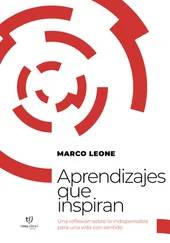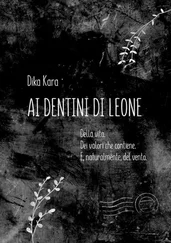Deda headed outside with the spoon, it was dark and there was a chill in the air, a wind blowing down from the snowy peaks, they didn’t follow him, just stayed there in the doorway, watching his back disappear between the trunks of the pines. He headed on not knowing what he was looking for or how to get rid of the dead animal, if only there were a river nearby, or a ravine, anyplace where you could make a squirrel disappear.
He’d already gone too far, he turned around and couldn’t see the light of the cabin, he couldn’t see anything, just the full moon shrouding the world in gray. Deda knelt down, placed the spoon on the dead pine needles, and started digging. He dug with his fingers, thousands of needles from this year and all the years gone by, thousands of thousands of dry, damp, and rotten needles, until he touched earth, a soft black earth that got up under his fingernails. He dug down, piling the dirt left and right until the hole was deep enough to fit the spoon and the squirrel. The end of its tail was still poking out a little, so he folded it over with his hand, touching the little creature for the first time, the dead fur comforting, as if it had never been alive. He then gathered a pile of dirt with his hands, first extending them as if before a hug, and then closing them as if in prayer, this ten times over, until all the dirt and needles were again in place.
He headed back to the cabin. The squirrel had drowned in the toilet bowl, but how it got there, how it made it under the seat and what it was after, Deda had no idea. He thought about lying to them, saying it wasn’t a squirrel at all, yeah, that’s the one, everything would then be okay again. But what was the point in lying; the squirrel wasn’t going to disappear if he just said it hadn’t been a squirrel, everything wasn’t going to be okay if he simply told them it’d been a rat after all. No, he wasn’t going to lie about anything. Deda’s not a kid, it was a squirrel, and now let’s try to forget it.
Away, I’d rather sail away
It was like it was the last day of summer; the sea calm and dark, the seafront almost deserted, barely ten people waiting for the ferry: a grandma with her grandchild, the kiosk lady waiting for today’s newspapers from the mainland, three fishermen with their bottles of beer, a handful of nondescript men and women — and Boris. He was leaning on the ticket booth, smoking, gazing out toward the edge of the bay around which the ferry would soon circle. It was fifteen minutes late, enough time to smoke two cigarettes, but no one was worried about the delay. The passengers didn’t appear in any hurry, the woman from the kiosk less than desperate to get back to work; the fishermen hadn’t even finished their beers. Boris was in a funk about the ferry’s arrival, and every delay gave him that much more time to pull himself together, to melt the ice cube in his stomach that had been there since he’d woken up and realized that today he was going to attend to what he had left undone for the past six years, something that might have changed his life had he, like a submissive Polish inmate in a concentration camp, said his farewells in an orderly and timely fashion.
He was thirty-three, and as his editor liked to say, already a few months older than Christ. He’d only come to the island to meet the ferry. He hadn’t been to the seaside in years, but something in that telephone conversation had drawn him into a lie: the desire to portray his life as being as normal as possible, which meant telling her that he’d be on Korčula on the thirty-first of August, to which she had replied hey, that’s great, what a coincidence, as fate would have it I’ll be showing my husband around the Adriatic then , and naturally it was an opportunity not to be missed, and why would they; after so many years they were to see each other again, to put to rest what had remained unsaid, what in the staging of a life no one can escape, not even those masterfully adept at hiding, those who always — even when it’s completely uncalled for — lie.
Boris had arrived from Sarajevo the night before and had rented a room for a couple of nights, planning to return the following day. He wore sandals on his feet and a straw hat on his head, disguising himself as a man on summer vacation — and oh boy, wasn’t he just resting up. He hadn’t tanned like people on summer vacation do, but that didn’t bother him. She knows, she remembers that he always stays in the shade or under the canopy of a café. His hair isn’t salty, he hasn’t gone in the water and has no intention of doing so, but this didn’t matter either, she wouldn’t be probing the saltiness of his skin.
He stubbed out his cigarette and licked his forearm. It seemed like the thing to do. In the midst of a real panic attack it’s best to have a completely imaginary one, something to heal you like those trusty childhood lies that return from time to time; they never harbored any ill intent, you never even told them to anyone. When you lie to yourself, it’s not actually a lie but a way to repair the irreparable, to create space for a new life, for a joy only otherwise possible by exhausting encounters with reality and a Tarzan-like flight from one dunghill of whatever gets you down to another. So it’s easier to lie, and in the end the result is the same, just so long as others never find out about it.
The ferry revealed its dull bow from behind the bay and began slowly gaining in size. Boris lit a new cigarette, hoping to ward off his fears, he ran his hand through his hair, and almost mechanically sucked in his stomach. The ferry needed ten minutes to reach the shore; it would be another two minutes for them to lower the gangplank, meaning he had another twelve minutes. It was like he had that long to live. He thought about the scandal with the American president, about his busted fridge, about the chair in his newsroom office that was too low for him and the computer he’d spilled Coke over so now it didn’t work; the only thing he didn’t think about was what was about to come.
A few people stood on deck. They started waving. The fishermen with their beers waved back. Not every boat’s the Titanic, he thought. He would protect himself by playing out of character, by smiling a smile that wasn’t his. He’d even bought a cigar, the first he would smoke in his life; he wouldn’t say anything that might allow her a way in. He’d sense it if she was on his trail, and that would make him vulnerable.
As soon as the passengers began disembarking he felt incredibly exposed. He should have waited somewhere out of the way. He recognized Maja as soon as she stepped on the footbridge, but from that distance she didn’t see him. Twice she accidentally glanced in his direction, her gaze then sliding on. This was good because it gave him more time. A tall, strong-looking man carried the bags; at that moment his height and strength were the only things Boris noticed, nothing else. Maja held a kid by the hand, a little kid probably no taller than the bollard to which the ferry was tied. Funny she didn’t mention the kid , he thought, coughed, put a smile on and fixed it there, walking the assured walk of a man who in that moment feared shame more than anything else.
Boriiiiiiiiiis! she called to him, nonchalantly passing the kid’s hand to Mr. Big.
They kissed in greeting; he felt the right corner of Maja’s lips, a bit too close , he thought, holding her in his embrace and waiting for hers to recede. He didn’t want the hug lasting too long — it wasn’t actually a real one — there, in full view of her man. Mr. Big smiled a smile of happiness and sympathy, that’s probably the best way to put it. He must have been happy to see his wife happy, while the sympathy might be accounted for by the fact she was visiting her homeland for the first time in six years, or actually her former homeland — because we are what is written in our passports — a country that had seen war come and go, and now she was meeting up with a dear friend .
Читать дальше












